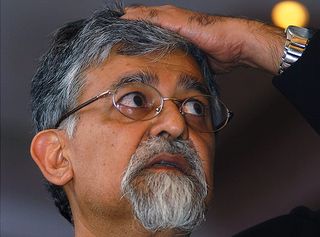Was there an alternative to the lockdown?
Lockdown was needed as a shock therapy for those who were not taking this pandemic seriously, not taking necessary precautions or behaving irresponsibly. It is time to start phasing out the lockdown, keeping in mind the source of the spread (international travel from infected countries), its geographical variability, the need for social distancing and the necessity of wearing masks and washing hands.
What more should the government do to deal with the economic and social impacts of this crisis.
There are three stages for handling this crisis. During the lockdown, the Union and state governments have to ensure the survival of those who do not have sufficient savings to tide over the loss of income and jobs. After the lockdown is lifted, the crisis will persist for six to nine months. During this time, the government has to ensure the survival of badly affected sectors like air travel and hospitality, and indebted, cash-poor firms which are basically sound but will go bankrupt, permanently destroying jobs in the economy. In the third stage, the government must put in place economic reforms and policies that ensure a quick recovery from the crisis and a speedy return of the economy to its full growth potential.
The government has suggested staggered lifting of the lockdown. How should it be done?
The time has come for phasing out the lockdown. This will be faster in unaffected and mildly affected districts and slower in highly affected districts. Similarly, phasing out must be quicker in goods sectors (agriculture, mining, manufacturing) and in transport, than in contact sectors. However, some restrictions must remain.
What changes are we looking at in the post Covid-19 scenario?
I expect a far greater understanding of the difference between public health issues dealing with communicable diseases, cleanliness, sanitation and pollution, and personal health issues such heart disease, diabetes and cancer. Globally, I expect a slowing, even a temporary reversal of the trend, towards international travel and tourism. I also expect an increase in the trend growth of digitisation, dispersal and decentralisation.
What are the lessons for India and the world.
We have to draw a distinction between risk which is measurable and uncertainty which is a black hole. Thus, when the uncertainty is very high, as it was for the SARS coronavirus 2, it is probably better to overreact than to be overcautious. Countries that acted earlier and more comprehensively seem to have done better than those that delayed it.


